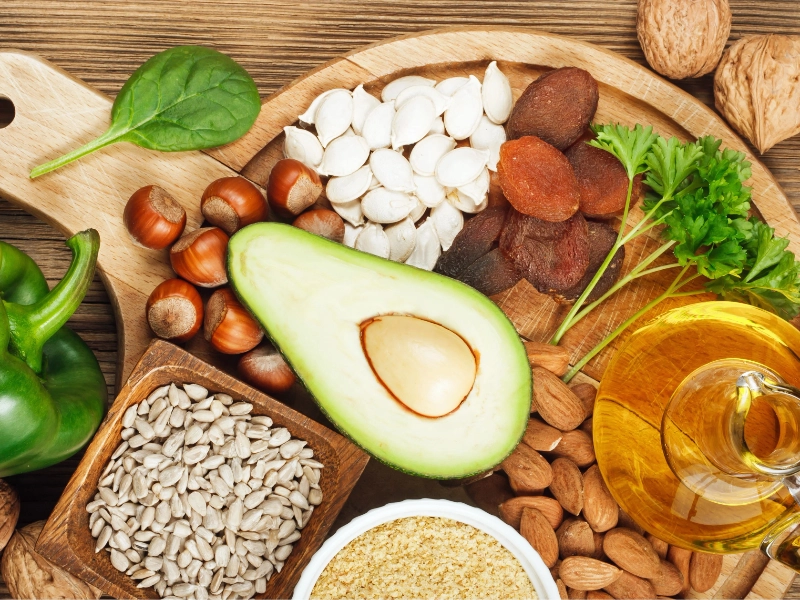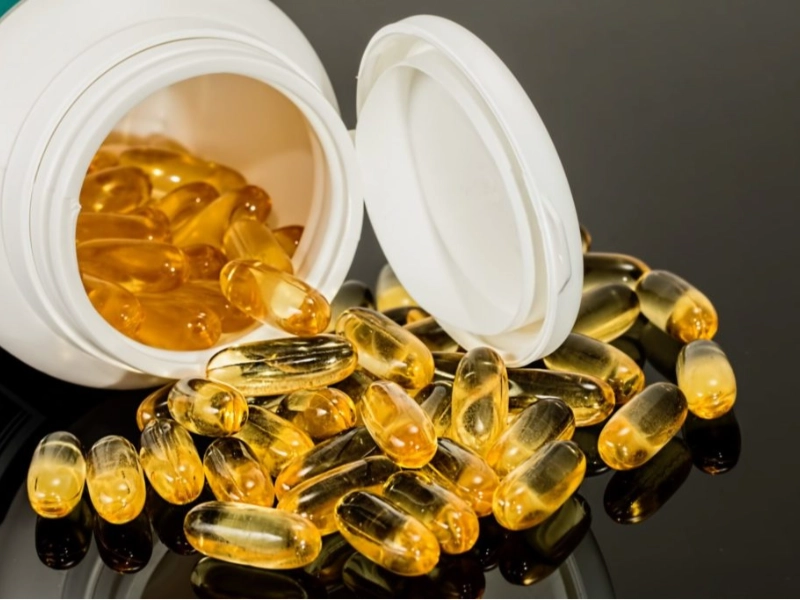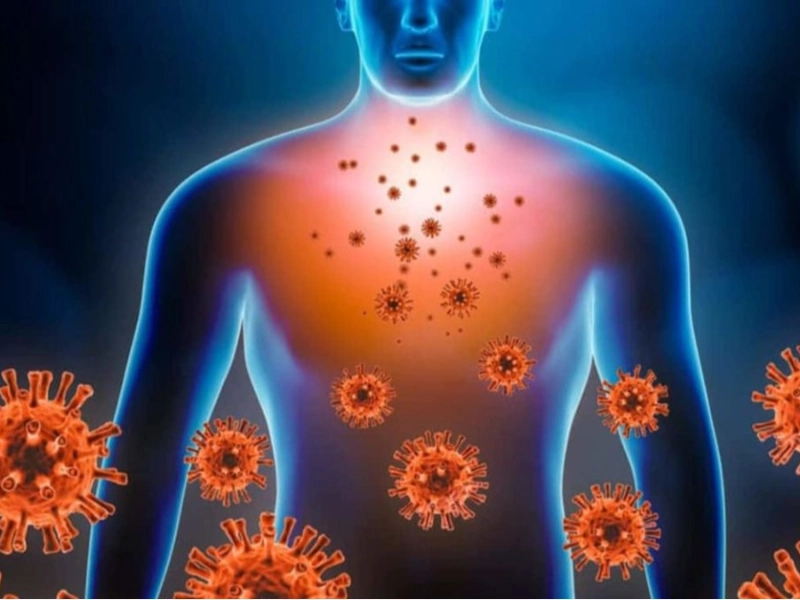Vitamin E, a fat-soluble antioxidant, has been demonstrated to mitigate muscle damage and oxidative stress caused by exercise. A meta-analysis revealed that vitamin E supplementation can lower levels of creatine kinase (CK) and lactate dehydrogenase (LDH)—markers of muscle injury—along with malondialdehyde (MDA), which indicates lipid peroxidation. However, additional research is required to fully establish its benefits. In the meantime, incorporating various recovery strategies—such as a nutritious diet, sufficient sleep, and appropriate supplements—can enhance recovery.

 Beyond its antioxidant role, vitamin E functions as a membrane repair agent, safeguarding muscle cells from free radical damage during strenuous exercise. Free radicals can inflict damage on muscle cells and disrupt their proper functioning. Studies have indicated that vitamin E can shield against these harmful effects, helping maintain the flexibility of phospholipids, which are crucial components of cell membranes.
A recent meta-analysis of randomized controlled trials (RCTs) found that dietary vitamin E supplementation significantly reduced biomarkers of muscle damage, including CK and LDH, particularly immediately after exercise and among athletes. Notably, lower doses of vitamin E (≤500 IU per day) were associated with the most significant protective effects, likely due to reduced oxidation of vitamin E at these levels.
Beyond its antioxidant role, vitamin E functions as a membrane repair agent, safeguarding muscle cells from free radical damage during strenuous exercise. Free radicals can inflict damage on muscle cells and disrupt their proper functioning. Studies have indicated that vitamin E can shield against these harmful effects, helping maintain the flexibility of phospholipids, which are crucial components of cell membranes.
A recent meta-analysis of randomized controlled trials (RCTs) found that dietary vitamin E supplementation significantly reduced biomarkers of muscle damage, including CK and LDH, particularly immediately after exercise and among athletes. Notably, lower doses of vitamin E (≤500 IU per day) were associated with the most significant protective effects, likely due to reduced oxidation of vitamin E at these levels.
 During intense exercise, the body generates reactive oxygen species that can damage muscle tissue. The antioxidant properties of vitamin E help neutralize these free radicals, protecting muscle health. Additionally, vitamin E is vital for supporting immune function and alleviating muscle cramps. Studies have shown that it can diminish oxidative stress in muscles and counteract the decline in immune function that often follows vigorous workouts.
One study found that vitamin E supplementation reduced delayed onset muscle soreness after eccentric exercise—a type of workout that lengthens muscles and commonly causes soreness. Researchers suggest that this reduction in soreness is related to vitamin E’s ability to prevent decreases in neutrophil responses and increases in CK activity, both of which are linked to muscle damage and repair. Furthermore, vitamin E supplementation was shown to lower the excretion of thiobarbituric acid, a marker of oxidative tissue damage.
During intense exercise, the body generates reactive oxygen species that can damage muscle tissue. The antioxidant properties of vitamin E help neutralize these free radicals, protecting muscle health. Additionally, vitamin E is vital for supporting immune function and alleviating muscle cramps. Studies have shown that it can diminish oxidative stress in muscles and counteract the decline in immune function that often follows vigorous workouts.
One study found that vitamin E supplementation reduced delayed onset muscle soreness after eccentric exercise—a type of workout that lengthens muscles and commonly causes soreness. Researchers suggest that this reduction in soreness is related to vitamin E’s ability to prevent decreases in neutrophil responses and increases in CK activity, both of which are linked to muscle damage and repair. Furthermore, vitamin E supplementation was shown to lower the excretion of thiobarbituric acid, a marker of oxidative tissue damage.
 As the body engages in exercise, it expends energy and produces free radicals that can harm muscle tissue. Vitamin E, as a powerful antioxidant, helps neutralize these free radicals and promote healthy muscle cells. It also enhances immune function, potentially preventing the dip in immunity that often occurs after intense workouts and alleviating post-exercise muscle discomfort.
In one study, participants taking 400 IU of vitamin E daily reported significantly less intensity of post-exercise muscle pain, particularly in individuals undergoing hemodialysis. A meta-analysis of seven RCTs confirmed that dietary vitamin E supplementation can reduce biomarkers for muscle damage and oxidative stress, such as CK and LDH, with the protective effect being most noticeable immediately after exercise or among athletes.
Vitamin E is available in various forms, including tocotrienols and alpha-tocopherol, and can be found in numerous foods, such as almonds, spinach, broccoli, and strawberries. When paired with vitamin C, another potent nutrient, it can further support immune function and assist in alleviating muscle soreness following exercise.
As the body engages in exercise, it expends energy and produces free radicals that can harm muscle tissue. Vitamin E, as a powerful antioxidant, helps neutralize these free radicals and promote healthy muscle cells. It also enhances immune function, potentially preventing the dip in immunity that often occurs after intense workouts and alleviating post-exercise muscle discomfort.
In one study, participants taking 400 IU of vitamin E daily reported significantly less intensity of post-exercise muscle pain, particularly in individuals undergoing hemodialysis. A meta-analysis of seven RCTs confirmed that dietary vitamin E supplementation can reduce biomarkers for muscle damage and oxidative stress, such as CK and LDH, with the protective effect being most noticeable immediately after exercise or among athletes.
Vitamin E is available in various forms, including tocotrienols and alpha-tocopherol, and can be found in numerous foods, such as almonds, spinach, broccoli, and strawberries. When paired with vitamin C, another potent nutrient, it can further support immune function and assist in alleviating muscle soreness following exercise.